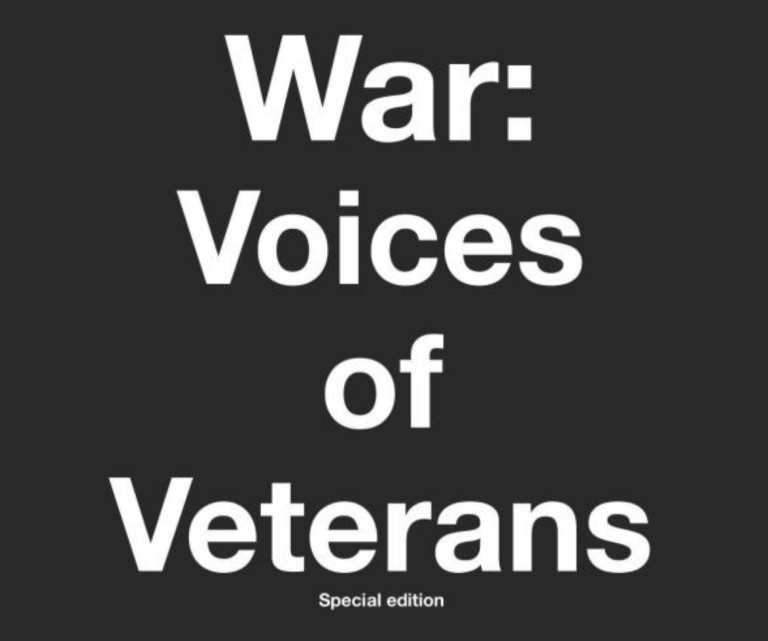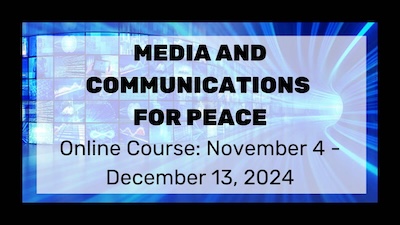
The vast majority of people who experience war directly, first-hand, rather than through Hollywood movies or politicians’ speeches, are the people who live where wars are waged. In wars involving distant wealthy nations on one-side, some 95% of those killed or injured or traumatized, and 100% of those bombed out of their homes are people against whom war is waged, most of them civilians and the rest of them people doing exactly what any Hollywood movie or politician would tell them — have told them — to do: fight back.
But there remains that other group, the invaders from a distant wealthy land. They’re much smaller in number but their numbers are still large, and — just like the people they attack — their suffering is long-lasting. More of them die from suicide after a war is supposedly over than die during it. The diseases and mental disturbances they bring home impact them and those around them and others not yet born. They’re either mocked as losers or used as props to sell more wars — that’s called having choices in the World’s Greatest Democracy. Pick the Party that mocks veterans while creating more of them or the Party that glorifies them while creating more of them. Without having those two choices on Holy Election Day, why, you’d deserve to be bombed like all the undemocratic people the wars are waged against.
What do veterans think of war? Nancy Hill asked dozens of them and has published their answers and photographs of them. She has included U.S. veterans from World War II through current wars. She has included multiple perspectives. While many of those in her book, War: Voices of Veterans, are members of the terrific antiwar group Veterans For Peace, and the sample is certainly not representative of U.S. veterans as a whole, there are people featured here who denounce, and others who spout, war propaganda.
“War is for the corporate elite for their exploitation of other countries.” –Harvey L Thorstad.
“A soldier protects other rights and even if you disagree with what the government does, you must protect your freedom.” –Judith Lynne Johnston.
Presumably even if you disagree that a war protects freedom, you still must wage that war to protect freedom.
There’s a range also from eloquence to incoherence, from poetry to illiteracy. But collectively, the statements of these veterans begin to paint a picture that is not to be found on corporate television or in a video game designed by the U.S. Army.
“You do not get shot and lay down and count to fifty and get back in the game when you get up.” –Thomas Brown
“[O]ne of my buddies is in a hospital in Raleigh. He killed a 12-year old girl who came into camp strapped with dynamite. She was a suicide bomber. We all would have been killed. He was the only one with a heart to shoot her. It messed him up in the head and he’s in a mental hospital.” –Charles Battle
Why didn’t he just crack a joke after killing the girl like they would have done in a movie? Was he weak and delicate, not up to the standards of Donald Trump who can barely get through a negative comment by a TV personality without exhibiting PTSD symptoms? No, he was normal. War is not.
“A normal person does not want to kill and will avoid it at all costs. The military won’t allow you to remain normal.” –Larry Kerschner
“After the battle is over survivor’s guilt and survivor’s joy wage their own war in your soul. Combat is not T.V. or the movies. It is loud, dirty, hot and filled with the screams of the wounded and dying. If it lasts long enough the smell of decomp is over-whelming.” –Greg Hill
A number of the men and women who participated in making this book aim to discourage others from enlisting.
“You should know that war is not a romantic adventure. You become part of a killing machine & are complicit in the killing of innocent civilians, the destruction of cities, the devastation of the environment even if you never pull a trigger or drop a bomb.” –Allen Hallmark
“Don’t lie to yourselves or your children when it comes to military service [sic]. Don’t let them grow up to be dead soldiers.” –Penny Dex
When you speak against war, at least if you’re not a veteran, you’re usually accused of “hating the troops.” I don’t. I adore the troops. I love them so much that I want to offer them the option of a free quality college education and a satisfying, useful job with a living wage, as an alternative to enlistment. If you do not want to offer them that choice, I have to inquire: why don’t you love them more than you do? What are they to you, fools and suckers, or props for propaganda?








